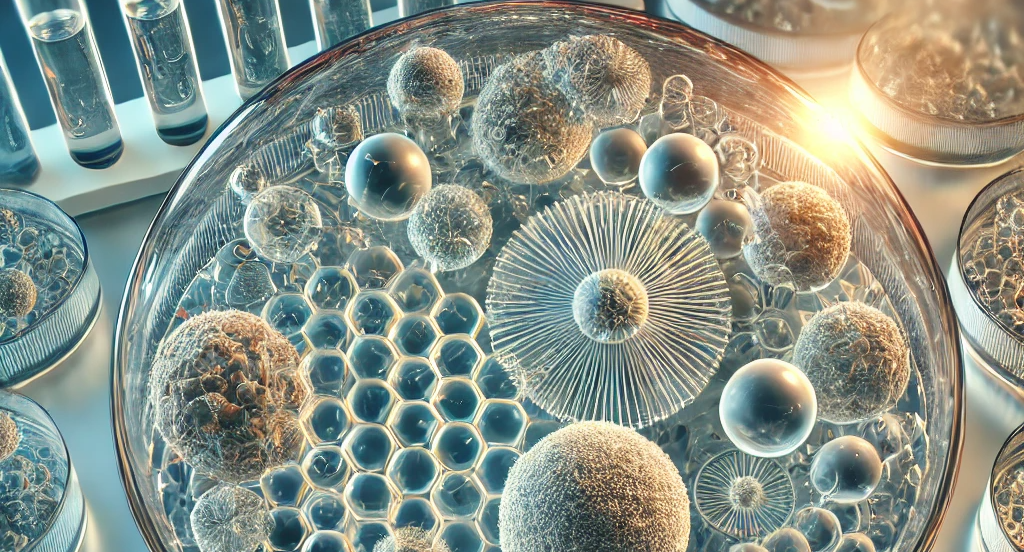Biomaterial-based Artificial Cells for Cell Modulation and Expansion
KEY INFORMATION
Life Sciences - Industrial Biotech Methods & Processes
TECHNOLOGY OVERVIEW
Immune cell activation and expansion for cell therapy is a strictly regulated process. It demands costly and labour-intensive optimization of cell culture conditions. Major limitations of these processes are cell quality and results consistency. Large amounts of expenses were spent on culture conditions, cell characterizations and quality control (QC) with differing culture protocols and recipes in growing CAR-T cells.
This technology has established a biomaterial-based artificial cell platform to replace plastic beads, significantly improving cell stimulation performance. The artificial cells uses polysaccharides, lipids, and proteins to mimic live cells, meeting the demand for reproducibility and standardization while being 100% degradable. To address this gap, a modular, all-signals-in-one microbead-based platform has been developed for the next-generation cell therapy R&D and translation. In this delivery platform design, the modular feature allows rapid ‘plug-and-use’ of multiple surface and soluble signals to grow T-cells ex vivo without the need for extensive setup and integration of culture protocols. This platform aims to provide a seamless and straightforward cell culture experience for the industrial and academic research users to discover new types and applications of immune cell therapy.
Additionally, the all-signals-in-one synthetic platform mimics the natural antigen presenting cells to activate and expand T-cells on dish, allowing cell manufacturers to ‘mix-and-grow’ immune cells with reduced effort or technical expertise. This aims to improve the cost-effectiveness and scalability of cell therapy manufacturing.
The technology provider is seeking collaborations with cell therapy CDMOs/CMOs in licensing and various R&D developments.
TECHNOLOGY FEATURES & SPECIFICATIONS
The artificial cells are a game-changer in cell therapy, offering a sustainable and environmentally friendly alternative to plastic beads. The core of these cells is made of hydrogel, a biodegradable material that mimics the size and texture of live cells. The hydrogel core is treated with special anchors to allow the coating of lipids, recreating the fluid lipid membrane of real cells. The required activation signals are then docked onto this mobile membrane via avidin-biotin interaction, presenting the signals in the most 'natural' way possible.
By mimicking cell-cell interactions, the artificial cells provide enhanced quality signals to target cells. The modular design allows for easy customization of surface signals, enabling selective growth of specific cell types. This versatile platform opens doors to discovering and testing new signal pathways and isolating specific cell types.
The technology provider now offers a product for T cell activation and expansion, and is developing working prototypes for regulatory T cell and NK cell activation and expansion. The hydrogel-based artificial cells are not only biodegradable but also have the potential for in vivo immunomodulation, paving the way for vaccines for cancers and autoimmune diseases. This technology empowers researchers to grow better cells quicker and discover specific cell subtypes. Cell therapy manufacturers seeking competitive edges in production speed and quality are ideal commercial partners for this innovative and eco-friendly platform.
POTENTIAL APPLICATIONS
The proprietary microbead-based platform functions as an artificial cell, with its fluidic membrane surface signals presentation and controlled-released soluble signals. The platform application includes but not limited to:
- Cell therapy manufacturing: Microbeads can be used to support and supplement ex vivo T-cells activation and expansion.
- Cell-based therapies and regenerative medicine: Microbeads can be engineered to mimic the functions of specific cell types, such as T-cells for immunotherapy, pancreatic cells for diabetes and glial cells for neuron repair.
- Versatile high-throughput screening platform bridging in-silica signals discovery and in-vitro validation: The ‘plug-and-use’ microbead-based platform feature, together with the versatility avidin-biotin technology and accessibility of commercial biotinylated recombinant proteins and antibodies enable rapid in vitro tests of novel biochemical signals and combinations on cell functions.
Market Trends & Opportunities
Cell therapy is the next pillar of medicine for the treatment of chronic diseases, such as cancer, autoimmune disorders etc. The cell expansion market was valued at 41.3B USD in 2021 with a CAGR of 12.6%. Nonetheless, many cell therapeutics are still in the discovery and pre-clinical phase. The clinical translation is hampered by suboptimal culture process, unstandardized protocol, limitations of research tools and ex vivo signals delivery platform and high demand of technical expertise. The predominant player in cell expansion and activation market is the magnetic microbeads with emerging alternatives such as antibody tetramers, polymeric nanomatrix, nanosystems with varying shapes/size/stiffness to expand the cell growth tools, facilitate R&D and translational research of cell therapy.
Unique Value Proposition
This biomaterial-based artificial cell platform revolutionizes cell therapy by providing a sustainable, eco-friendly, and high-performance alternative to current synthetic solutions.
Key Advantages:
- Environmentally Friendly: 100% biodegradable, mitigating the environmental impact of plastic beads.
- Versatility: Enables the expansion of diverse cell types unserved by current plastic bead-based solutions, such as tumor infiltrating lymphocytes (TILs), natural killer (NK) cells and regulatory T cells.
- Superior Performance: Up to 2 times faster immune cell expansion compared to state-of-the-art plastic microbeads, with less cell exhaustion.
- Streamlined Process: Eliminates the need for de-beading, as the hydrogel-based artificial cells degrade at predetermined timepoints.
This artificial cell platform empowers researchers and cell therapy manufacturers to:
- Contribute to a more sustainable and eco-friendly future in cell therapy.
- Expand diverse immune cells faster and more efficiently.
- Produce higher quality cells with less exhaustion.
- Grow challenging cell types, such as NK cells, with the ability to re-stimulate growth.
- Simplify their processes by eliminating the need for de-beading.

